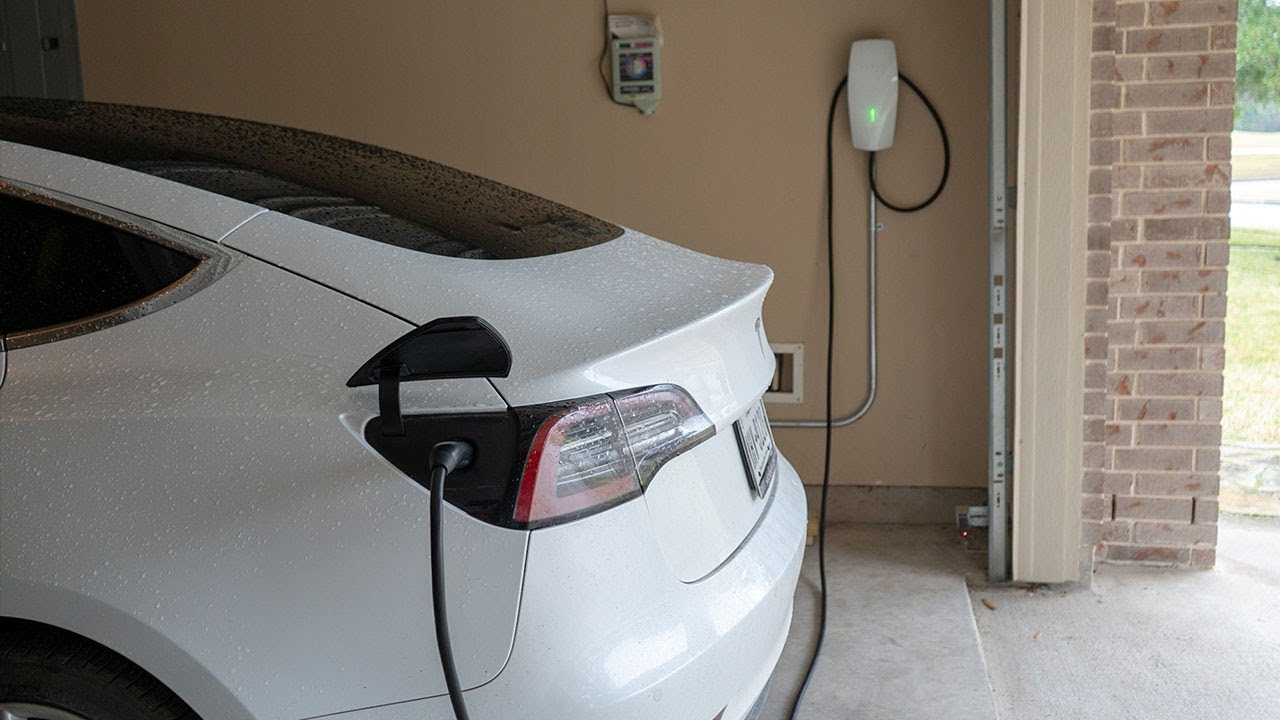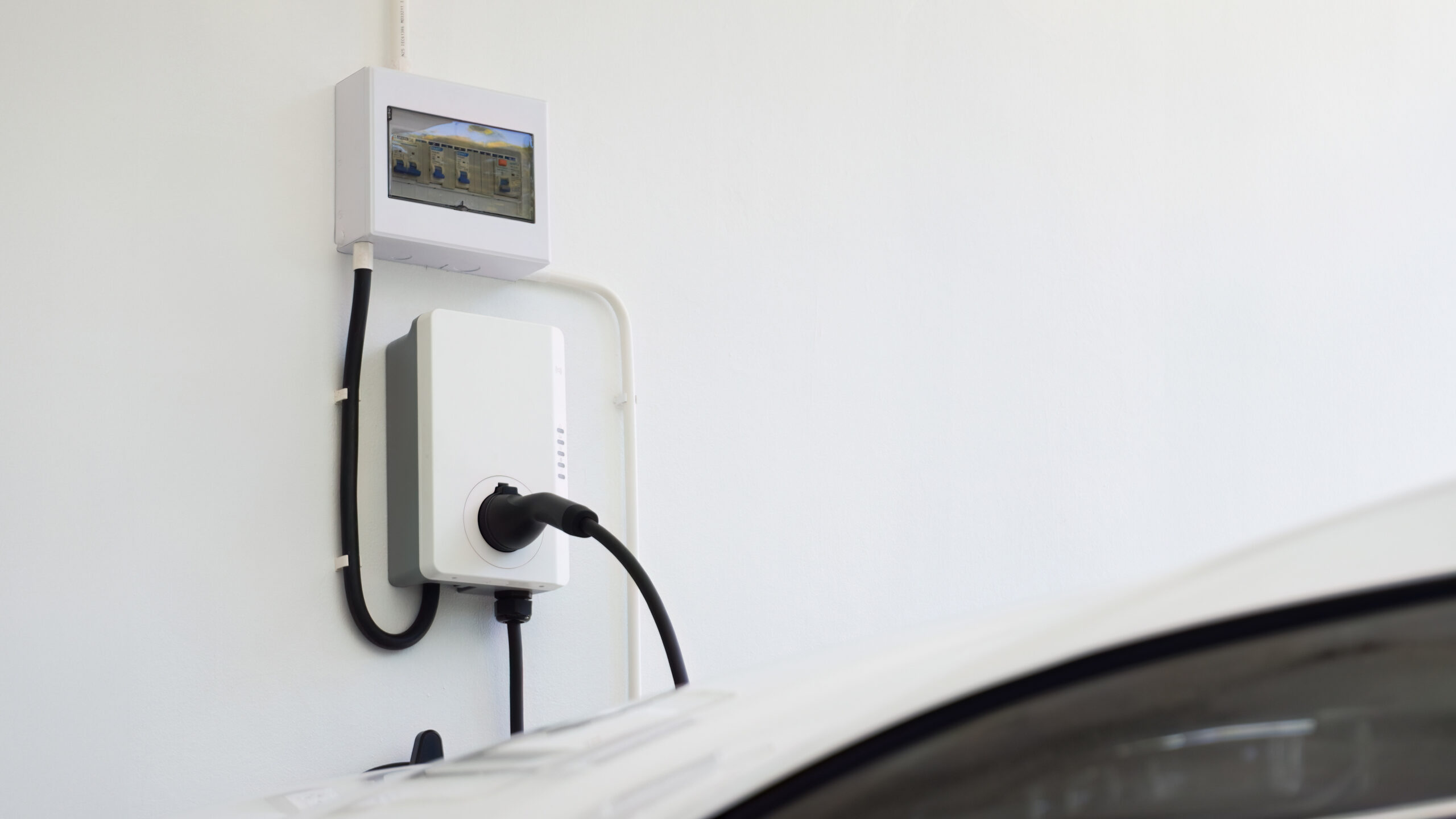If you’re an electric vehicle (EV) owner or considering making the switch, you’ve probably wondered: Can you charge an electric car with a regular outlet?The good news is, yes, you can! Charging your EV at home with a standard 120-volt outlet is one of the simplest and most accessible options. But is it the best choice for your lifestyle and driving habits? As the demand for EVs grows, understanding how home charging works—along with the limitations and benefits of using a regular outlet—is essential for both convenience and safety.
In this guide, we’ll dive into the details of Level 1 EV charging, explain how it compares to faster options like Level 2 charging stations, and discuss important considerations such as charging times, energy efficiency, and electrical system upgrades. You’ll also learn why professional services, like those offered by Boca Electrical Services, Inc., can make all the difference when it comes to safe and reliable EV charging at home. Whether you’re a daily commuter or a weekend driver, this article will help you make an informed decision about your EV charging setup.
Keep reading to discover how to maximize your electric car’s potential while ensuring your home’s electrical system is up to the task!
Understanding EV Charging: Levels of Charging Explained
When it comes to charging electric vehicles, there are three primary levels of charging stations: Level 1, Level 2, and Level 3.
Level 1 Charging (Regular Household Outlet)
A regular outlet, also known as a Level 1 charger, is a standard 120-volt outlet found in almost every home in the United States. This is the simplest and most accessible way to charge an electric car. Simply plug your EV into the outlet using the charging cable that comes with your vehicle. While it’s convenient, Level 1 charging is the slowest option available, delivering around 3-5 miles of range per hour.
Level 2 Charging
Level 2 charging involves a 240-volt outlet, which significantly increases charging speed. Most EV owners who charge at home upgrade to Level 2 chargers for their convenience. A Level 2 charger typically adds 20-40 miles of range per hour, depending on the vehicle and charger specifications. Installing a Level 2 charger requires professional expertise, and this is where Boca Electrical Services, Inc.can help by ensuring safe and reliable installation.
Level 3 Charging (DC Fast Charging)
Level 3 charging is primarily available at commercial charging stations and uses direct current (DC) for ultra-fast charging. These chargers can add hundreds of miles to your EV’s range in under an hour. However, Level 3 charging stations are not practical for home use due to their cost and power requirements.
Charging an Electric Car with a Regular Outlet: What You Need to Know

The Benefits of Level 1 Charging
Using a regular outlet for EV charging has its perks, especially for certain users. Here’s why it can be a viable option:
- Accessibility: Regular outlets are widely available in homes, garages, and driveways, making this a cost-effective and immediate solution for EV owners.
- No Installation Costs: You don’t need to hire an electrician to install new equipment. This is ideal for individuals who drive shorter distances and don’t need rapid charging.
- Convenience for Overnight Charging: If your daily commute is short, Level 1 charging can replenish your battery overnight.
The Downsides of Level 1 Charging
While using a regular outlet is convenient, it has limitations that may not meet the needs of all EV owners:
- Slow Charging Speed: Charging an EV with a regular outlet takes significantly longer than Level 2 or Level 3 options. For example, a full charge can take 24-48 hours, depending on your vehicle’s battery size.
- High Energy Draw: EVs draw a consistent level of power, which can strain older electrical systems. This can lead to circuit overloads or even pose fire hazards if not properly managed.
Safety Considerations for Level 1 EV Charging
Check Your Electrical System
Before you start plugging in your EV, it’s crucial to evaluate your home’s electrical system. A standard 120-volt outlet can handle EV charging, but only if the wiring and circuit breakers are in good condition. Outdated wiring or overloaded circuits can cause overheating or even electrical fires.
Use Dedicated Circuits

It’s recommended to use a dedicated circuit for EV charging to prevent overloading other appliances. If you’re unsure whether your outlet is up to the task, consult a licensed electrician, such as the team at Boca Electrical Services, Inc., to inspect and upgrade your system if needed.
Invest in Safety Features
When charging with a regular outlet, ensure that the charging equipment includes built-in safety features like surge protection, ground fault circuit interrupters (GFCIs), and temperature monitoring.
When to Upgrade to a Level 2 Charger
If you find that Level 1 charging doesn’t meet your daily driving needs, upgrading to a Level 2 charger is the next logical step. A Level 2 charger can reduce charging time significantly and is ideal for EV owners with longer commutes or multiple vehicles to charge.
However, installing a Level 2 charger is not a DIY project. It involves working with high-voltage wiring and potentially upgrading your home’s electrical panel. This is where Boca Electrical Services, Inc.excels. With over 38 years of combined experience, our team provides safe and efficient installation services tailored to your specific needs.
Why Choose Boca Electrical Services, Inc. for Your EV Charging Needs?
At Boca Electrical Services, Inc., we understand the growing demand for electric vehicles and the importance of reliable charging solutions. Here’s why we’re the best choice for your EV charging installation and electrical upgrades:
- Expertise You Can Trust: With nearly four decades of combined experience, our electricians are trained to handle even the most complex electrical installations.
- Local, Family-Owned Business: Based in Boca Raton, we serve the greater South Florida area, including Palm Beach and Broward Counties. Our customer-first approach sets us apart from the competition.
- Comprehensive Services: From residential electrical work to commercial installations, surge protection, chandelier installations, and more, we’re your one-stop shop for all your electrical needs.
- Safety First: We provide free home safety inspections with every job to ensure your electrical system is up to code and functioning safely.
Essential Takeaways for Charging Your Electric Vehicle at HomeKey Takeaways
charging an electric car with a regular outletis a practical option for many EV owners, especially those with shorter daily commutes or access to overnight charging. While a 120-volt outlet provides a convenient and cost-effective entry point for EV charging, it comes with limitations such as slower charging times and potential electrical risks if your home’s system isn’t properly prepared. For a more efficient and reliable solution, upgrading to a Level 2 charger is often the best choice, offering faster charging and better long-term convenience. Partnering with experienced professionals, like Boca Electrical Services, Inc., ensures your electrical setup is safe, optimized, and ready to handle the demands of EV charging.
As electric vehicles continue to grow in popularity, advancements in charging technology and infrastructure will make it even easier for homeowners to meet their energy needs. Whether you’re just starting your EV journey or looking to upgrade your charging setup, understanding the options available is key to making the best decision for your lifestyle. If you have questions about your home’s electrical capacity, the installation process, or how to transition to a more advanced charging system, don’t hesitate to reach out to the experts. We’d love to hear your thoughts and experiences with EV charging—share your feedback or join the conversation below!
People Also Ask
Can you charge an electric car with a regular outlet?
Yes, you can charge an electric car with a regular 120-volt outlet, often referred to as Level 1 charging. While this option is convenient and requires no additional installation, it is relatively slow, adding only 3-5 miles of range per hour. For faster and more efficient charging, upgrading to a Level 2 charger is recommended, which requires professional installation by licensed electricians like those at Boca Electrical Services, Inc..
How long does it take to charge an electric car using a regular outlet?
Charging times vary depending on the size of your EV’s battery, but with a standard 120-volt outlet, a full charge can take 24 to 48 hours. This makes Level 1 charging ideal for overnight charging or for drivers with short daily commutes. For faster results, consider installing a 240-volt Level 2 charger, which can reduce charging time to 4-8 hours.
Is it safe to charge an electric car with a regular outlet?
Charging an electric car with a regular outlet is generally safe if your home’s electrical system is up to code and the outlet is in good condition. However, older wiring or overloaded circuits can pose risks, such as overheating or tripping breakers. It’s recommended to consult a licensed electrician, like the experts at Boca Electrical Services, Inc., to inspect your home’s electrical system before regular EV charging.
Do I need to upgrade my electrical panel for EV charging?
You may need to upgrade your electrical panel if you plan to install a Level 2 charger or if your home’s current system is not equipped to handle the additional power demand. A professional evaluation by an electrician will determine whether your panel has enough capacity or requires an upgrade. Boca Electrical Services, Inc.specializes in panel upgrades and can ensure your system is ready for efficient and safe EV charging.
What is the difference between Level 1 and Level 2 charging?
Level 1 charging uses a standard 120-volt outlet and provides a slower charge, typically adding 3-5 miles of range per hour. Level 2 charging, on the other hand, requires a 240-volt outlet and delivers 20-40 miles of range per hour, making it a more practical option for most EV owners. While Level 1 charging works for occasional or short-range use, Level 2 is ideal for faster, more efficient daily charging, and its installation requires professional assistance.
Ready to Power Up Your Electric Vehicle? Call Boca Electrical Services Today!
Don’t get left powerless when it comes to charging your electric car. Whether you’re ready to upgrade to a Level 2 EV charger or need an inspection to ensure your regular outlet is safe for use, Boca Electrical Services, Inc.has you covered. Our family-owned and operated electrical contractor business has been serving Boca Raton and the South Florida area for over 38 years. Let us provide you with the expertise, safety, and reliability you deserve.
Contact Boca Electrical Services, Inc. Today!
Don’t wait—reach out to us today for a free consultation and home safety inspection. Let’s get your EV charging station set up and running in no time!